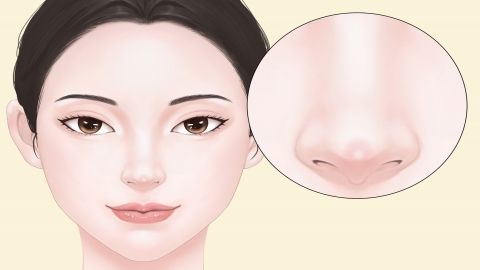Why is the nasal tip hard after rhinoplasty with implant?
Generally, prosthetic rhinoplasty can reshape the nasal structure and improve the appearance of the nose. The general reference price for prosthetic rhinoplasty is 5,000–10,000 yuan per session. Improvement is typically noticeable 4–6 months after surgery, although symptoms such as swelling and pain may occur. Hardness at the nasal tip after prosthetic rhinoplasty may be related to tissue hyperplasia, scar formation, prosthesis rejection, infection, or autoimmune reactions. It is recommended to seek timely medical advice and undergo treatments such as cosmetic dermatology procedures or medication under a physician's guidance. Detailed analysis is as follows:

1. Tissue Hyperplasia
After implantation of the prosthesis, surrounding tissues may develop a hyperplastic reaction due to foreign body stimulation, leading to nasal tip hardening. Laser therapy can be used under medical guidance, whereby laser energy stimulates the deeper layers of the skin, promotes collagen regeneration, and reduces tissue hyperplasia. The general reference price for laser therapy is 5,000–10,000 yuan per session. Improvement is typically noticeable 1–3 months after surgery, although mild redness and pain may occur.
2. Scar Formation
Surgical trauma may lead to local scar formation, affecting nasal softness. Scar-softening injections containing corticosteroids may be administered under medical advice to inhibit scar tissue proliferation and promote softening. The general reference price for scar-softening injections is 1,500–3,000 yuan per injection. Improvement is typically noticeable 7–15 days after surgery, although symptoms such as pain and redness may occur.
3. Prosthesis Rejection Reaction
The patient's immune system may mount a rejection reaction against the implanted prosthetic material. This reaction can cause nasal tissue inflammation and edema, which in severe cases may lead to nasal tip hardening and pain, often accompanied by fever and general malaise. Treatment may include medications such as dexamethasone sodium phosphate injection, hydrocortisone injection, or loratadine capsules, as directed by a physician.
4. Infection
Poor hygiene after surgery may allow bacterial invasion of the wound, causing infection. This leads to nasal tissue inflammation and edema, resulting in nasal tip hardening, often accompanied by symptoms such as fever, chills, and headache. Treatment may include medications such as amoxicillin capsules, cefixime dispersible tablets, or erythromycin ointment, as directed by a physician.
5. Autoimmune Reaction
An autoimmune reaction refers to an abnormal immune response against the body's own tissues. The implanted prosthesis may be recognized as a foreign body by the immune system, triggering an immune response that causes nasal tip hardening and other symptoms such as joint pain, lymphadenopathy, and fever. Treatment may include medications such as cyclosporine soft capsules, azathioprine tablets, or methotrexate tablets, as directed by a physician.
During the postoperative recovery period, it is recommended to maintain healthy lifestyle habits, ensure adequate rest, and avoid strenuous exercise to prevent interference with recovery outcomes.




